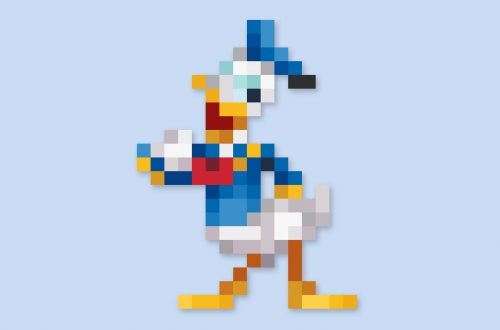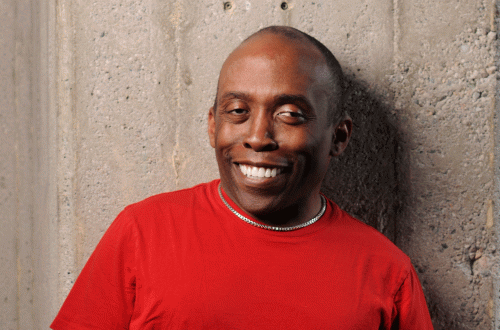By Kirk Douglas, for the Huffington Post

Actors are often described as “people who love rejection.” That’s not true. Every year hundreds of young boys and girls come to New York or Hollywood with dreams of becoming an actor and having their name in lights. They never expect to meet with rejection. “Too fat! Too thin! Too loud! Too soft!” Most of them go home. I stayed.
I was excited about my first acting venture. My agent sent me to the apartment of Mae West. Most young people today don’t remember her. She was a diva who traveled all over the world in a stage show with six adoring males. At the appointed time, 7:00 in the evening, I went to her apartment and was ushered into the living room. I found about ten good-looking guys also waiting for the audition. Mae West sashayed down the staircase. She was, surprisingly, a small woman walking on dangerously high heels. She looked around at the applicants. I was the first one to be rejected.
Finally, I got an audition for a small part in a Russian play with an all-star cast. My part was to be a young Russian soldier who was getting ready to go to war. He is saying goodbye to the trees around his house. In the middle of the stage, facing the audience, he cries out to the trees, “YAHOO!!” I didn’t get the part. However, as a small consolation prize, they still gave me a job. When the actor who got the part for which I was rejected called out “YAHOO!!,” I was his echo. I stood offstage and murmured, “yahoo!” softly from the wings.
I withstood many more rejections, but finally I got a part in the play The Wind is Ninety. The New York Times critic said, “Kirk Douglas was nothing short of superb.” That night in bed I poked my wife in her ribs, “Nothing! Why did he say ‘nothing’? Why didn’t he just say, Kirk Douglas was superb?” It takes me a long time to get over rejection.
Fast forward two decades. I was the father of a college-age son, Michael. Now every Jewish father wants his son (and now his daughter) to become a doctor or a lawyer. When Michael entered college in Santa Barbara he was going to be a lawyer. I was happy. But after a month at school he told me he was going to be in a play. I was surprised. It was a small part in Shakespeare’s, As You Like It. I drove up from LA to see it. He only had a few lines. After the performance, he asked me, “How was I, dad?” I said, “Michael, you were awful. I couldn’t understand a word that Shakespeare had written for you.” I thought my rejection of his performance would end any interest he had in becoming an actor. After a few months, I got call from him, “Dad, I’m going to do another a play.” I thought, My God, doesn’t this guy ever learn? But I went up to see it. It was a two-character play. After the performance he asked again, “How was I, Dad?” “Michael,” I said, “you were very good.”
Michael never asks me for anything. I went up to visit him in Santa Barbara; he was living in a ramshackle building. He insisted that I use the cot and he slept on the floor. During the night, I relieved myself outside over the porch. In the morning, I walked over to the toilet in another ramshackle building. I went in and there was a naked girl leaving the toilet with a cheery, “Good morning!” Of course, Michael never became a lawyer and embarked on a career as a professional actor. At the beginning, he suffered through the rejection that all actors experience. How they handle that rejection determines whether they ever have a career. Finally, he landed a part with Karl Malden on a TV series, The Streets of San Francisco. That was his first big break.
Some years earlier, I’d read a book that I loved, One Flew Over the Cuckoo’s Nest, by Ken Kesey. I was enchanted by it. I thought the leading role, McMurphy, was perfect for me. I bought the rights to the book, but I had a lot of trouble getting a studio interested in it as a film. So I hired a writer and we turned it into a play. I went to New York and performed it on Broadway for six months. The critics weren’t excited about it, so I went back to Hollywood to make it into a movie. I tried for years. No studio wanted to do a movie about an insane asylum. I didn’t know what to do. I was so eager to play the part of McMurphy.
Michael was doing very well. He just finished shooting The Streets of San Francisco. One day, he said to me, “How is it going with Cuckoo’s Nest“?
“Nobody wants to do it.”
There was a long pause, and then he said, “Dad, can I try to do something with it?”
I looked at him and thought, I have been trying for years to get this produced. What can hedo with it?
But I said, “Okay, you can try.”
Within a year he got the money, a director and was casting the picture. I was very proud of him, but I was so happy because now I would have the chance to play the coveted role of McMurphy. I went to visit him. “Michael,” I said, “I’m so proud of you! Who’s your director?”
“You wouldn’t know him.”
“But who is he?”
“He’s a foreigner. Milos Foreman.”
“I know Milos! I met him in Prague. He knows me!”
“Well, he thinks you’re too old for the part. He wants Jack Nicholson.”
Now I paused, for a long time. Finally I said, “Who’s he?”
I was happy that Michael put it all together but I was so disappointed that I would not be playing McMurphy. I was secretly anxious to see how badly someone else would muck up my part. I saw the movie for the first time at the premiere. Despite my personal feelings of rejection, I had to admit it was a great movie. Jack Nicholson was brilliant!
But even as old as (apparently) I now was, rejection still hurt. Yet, for me, it was a valuable lesson. Sometimes what you think you want is not what you really need. At this point in my life, Michael’s success was more important to me than my own.
Michael has gone on to a tremendously successful career. And he didn’t need any help from me. On my birthday, he gave me a beautiful new car. I sat in the driver’s seat and I saw a note on the wheel. I recognized Michael’s handwriting:
“Dad, you always say I never asked you for anything but you gave me a lot. Love, Michael”
What is the opposite of rejection? Acceptance.
Not just from others — from yourself.
This story appeared in a special Labor Day issue of the weekly iPad magazine, Huffington, in the iTunes App store, on Friday, August 30, 2013.



